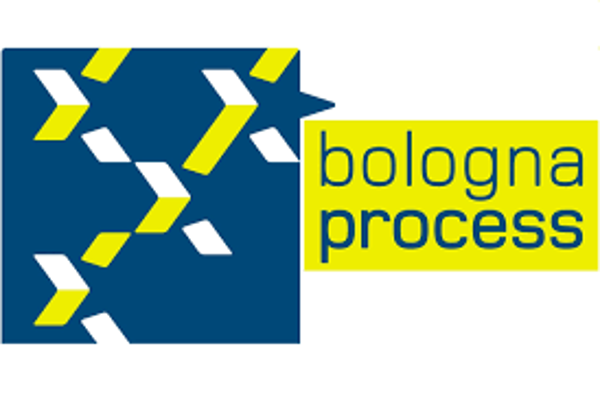The lesson to be drawn from the metaphor, as we all know, is that the right combination of reward and punishment can induce even such a stubborn animal as a donkey to show desirable behavior. However, in the case of the Orbán government, the donkey ate all the carrots without moving an inch forward and even persuaded the rider to use the stick very gently without causing any real pain. Indeed, the EU mechanisms have proven largely ineffective up until this point: firstly, the Article 7 procedure is progressing extremely slowly, secondly, the judgments of the CJEU establishing a violation of EU law by the Hungarian government usually come too late and offer too little remedy, if any, and thirdly, the Commission’s concerns expressed in the annual Rule of law reports are simply ignored by the Orbán cabinet.
However, since the activation of the EU’s most recent Rule of law mechanism set out in Regulation 2020/2092 (the so-called Conditionality Regulation), the Hungarian government seems to have made some concessions to the European Commission in the ongoing negotiation process. Does it mean that the European Union has eventually found the right combination of reward and punishment to induce the Orbán cabinet to respect the rule of law?
The idea of introducing a specific mechanism making the availability of EU funds dependent on a Member State’s compliance with some basic Rule of law requirements took the form of a Commission proposal in 2018. Unfortunately, only a watered-down version of the proposal was eventually adopted in 2020. What is more, due to a political concession demanded by Hungary and Poland, even the application of the Conditionality Regulation was practically suspended until the outcome of the CJEU’s review of the mechanism’s conformity to EU law. In February 2022, the judges in Luxembourg finally gave the green-light to move forward with the procedure. However, the European Commission triggered the conditionality process only after the fourth consecutive landslide electoral victory of the Fidesz-KDNP coalition led by PM Orbán in April 2022.
In September 2022 the Commission proposed to the Council the «suspension of 65% of the commitments in three operational programmes for the period 2021-2027 financed from the European Regional Development Fund (ERDF), Cohesion Fund (CF), Just Transition Fund (JTF), European Social Fund Plus (ESF+)». Even though the Orbán-government quickly passed a number of legislative measures in the parliament to address the Commission’s corruption related concerns, the Council was not entirely satisfied with the progress. In December 2022 the Council concluded that in light of Hungary’s cooperation during the negotiations the suspension of 55% of the funds «can be considered as a reasonable approximation of the impact on, or the serious risks for, the Union budget of the identified breaches of the principles of the Rule of law».
Interestingly, as Scheppele and Morijn point out, the Conditionality Regulation was not the only legal basis used by the European Commission to withhold EU funds from Hungary. Firstly, Regulation 2021/241 on the Recovery and Resilience Facility requires each Member State to submit a Recovery Plan to the Commission for approval, that is conditional upon the Member State’s compliance with country-specific recommendations formulated by the Council in the framework of the European Semester. Although these recommendations are largely economic in nature, they can be related to Rule of law concerns. So, when the Hungarian Recovery Plan was approved in December 2022, Hungary was required to put in place some measures to restore judicial independence.
Secondly, the 2021 Common Provisions Regulation stipulates that for the implementation of cohesion policy and home affairs programmes, Member States must comply with certain enabling conditions, including their compliance with the Charter of Fundamental Rights. Therefore, the Partnership Agreement adopted by the Commission to give Hungary access to EU funds included «a detailed roadmap to [...] tackle challenges such as transparency of, and competition in, public procurement; prevention, detection and correction of corruption; fraud and conflict of interest».
In sum, the combined application of these legal mechanisms threatened the Hungarian government with the risk of losing an estimated 28 billion EUR worth of EU funds in case of a failure to arrive at an agreement with the European Union.
Tibor Navracsics, former EU Commissioner for Education, Culture, Youth and Sport (2014-2019) and current Minister for Regional Development in the Orbán cabinet, was appointed as Hungary’s chief negotiator with the European Union. His appointment was probably based on the consideration (or just sheer hope?) that the calm negotiating style of Mr. Navracsics can counterbalance the strong anti-EU rhetoric of PM Orbán and the continuous verbal attacks launched against EU institutions by Justice Minister Judit Varga. However, the discussions have not been advancing as well as Mr. Navracsics had hoped who had envisioned the conclusion of a deal first by the end of 2022, then by the end of March 2023.
In the meantime, the pressure on the Orbán government was been growing. Firstly, the inflation rate is still extremely high (c. 25%) and the European Commission’s economic forecast for Hungary does not seem promising – although government sponsored advertisements put the blame on the economic sanctions adopted by the EU against Russia. Secondly, some of the EU decisions affected programs that are very popular in the country. For example, the EU foresaw the exclusion of those Hungarian universities from the Erasmus+ and the Horizon Europe programs which were recently put under the supervision of public interest funds controlled by government appointees.
The EU institutions set a large number of conditions for the Hungarian government based on the Conditionality Regulation, the Recovery and Resilience Regulation and the Common Provisions Regulation. Most of these conditions concern the effective prevention and prosecution of corruption, the independence of the judiciary and certain fundamental rights. Six Hungarian human rights NGOs recently published a meticulous analysis of the legislative measures adopted by the Orbán government until 31 March to satisfy the EU requirements. According to their conclusion «numerous issues related to the anti-corruption framework, competition in public procurement, judicial independence, the predictability, quality and transparency of law-making, the rights of refugees and asylum-seekers, academic freedom and the rights of LGBTQI+ persons remain unresolved, and remedial measures taken so far remain unsatisfactory».
We are a whole year after the activation of the conditionality mechanism and the Hungarian government has only recently brokered a preliminary agreement with EU Commissioner for Justice Didier Reynders on the judicial reform that still needs to be approved by the College of Commissioners. Although preliminary analysis (cited above) indicates that the legislative measures implemented so far have only partially satisfied the EU requirements, let us assume for a moment that the Orbán government will eventually manage to convince to European Union that the conditions of granting access to EU funds are met. Would that result mean that the European Union has found the right combination of reward and punishment to induce the Orbán government to respect the rule of law?
The firm answer to this question is no. First of all, notwithstanding the significance of the problems addressed by the Commission and the Council during the negotiations about the suspension of EU funds, they cover only a small fraction of the Rule of law violations, and do not aim to remedy the systemic deficiencies of the operation of the constitutional and the electoral system or the media section for example (Cf. Report of the European Parliament on Article 7 procedure).
Secondly, as long as the Orbán government enjoys the unconditional support of the two-thirds majority of MPs, it can amend any laws (including the Constitution) after the agreement as quickly as the PM wishes. Consider the example of the recent conflict between the government and the medical chamber over the reform of the healthcare system that was “resolved” by the enactment of a parliamentary law in two days (!) that abolished the medical professionals’ obligatory membership in the chamber. And even if the supermajority of Fidesz temporarily melted due to by elections (as it happened between 2015 and 2018), it could probably still count on the support of the far-right Mi Hazánk (Our Home) party on a case-by-case basis.
Finally, any durable commitment to the respect of the Rule of law and the prevention of despotism requires a well-functioning system of checks and balances which is not just a matter of legal regulation. According to the Madisonian logic «the great security against a gradual concentration of the several powers in the same department, consists in giving to those who administer each department the necessary constitutional means and personal motives (!) to resist encroachments of the others. [...] Ambition must be made to counteract ambition». But what if every important actor of the system of checks and balances is motivated by the same goal: to keep the Orbán-government in power? The members of the Constitutional Court, the Ombudsman, the President of the Court of Auditors, the President of the Republic, the Chief Public Prosecutor, the Chief Justice and so on have all been handpicked by the Orbán-government, and they have already shown their loyalty to the political leadership in power. Does anyone really expect that these institutions will miraculously start carrying out their constitutional role adequately and enforce the requirements of the Rule of law just because the Orbán-government signed a piece of paper to have access to EU funds?
Per rimanere aggiornato sulle novità di EUblog iscriviti alla Newsletter!






















